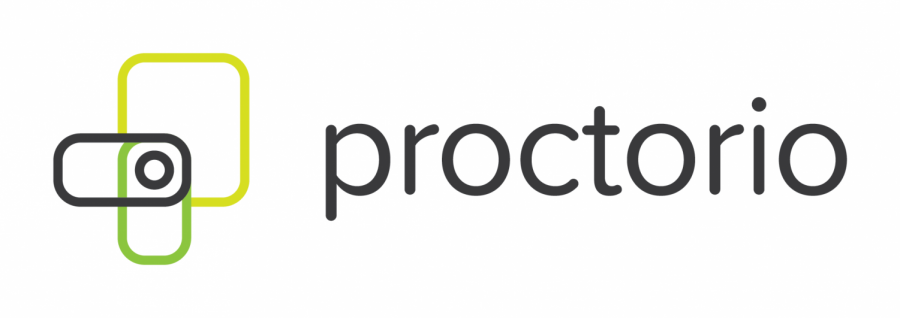Students raise concerns over virtual proctoring
The official logo of Proctorio
Apr 17, 2020
Proctorio, a program used to help ensure academic integrity during virtual exams, is being implemented by many professors for their tests; however, some students have concerns about their privacy.
Proctorio works by monitoring students taking their exams to prevent cheating. It often does this by recording them, their audio and their screen and providing an “automated suspicion report.” The report determines how much a particular student’s behavior seems to imply cheating. However, the use of these recordings is optional.
“It’s kind of like a one-sided FaceTime,” said Katie Lamarche, sophomore in LAS, who used the program for IB 150: Organismal and Evolutionary Biology.
Proctorio also ensures that students can’t click out of the test to find answers, further helping to prevent cheating.
Many professors have already adopted this technology for their exams. It worked well for Lamarche, despite the fact that she noticed some lagging.
Get The Daily Illini in your inbox!
“I actually liked (Proctorio) better than ProctorU,” Lamarche said of the competitor virtual proctoring program. “I don’t think it should be used on Moodle because it was super slow, but that could also be my Wi-Fi connection.”
Despite this issue, she noted that the program took a relatively short time to set up compared to ProctorU.
However, many students have raised concerns about Proctorio. Although initially choosing to use the program, after heavy pushback from her students, Ran Ji, professor in LAS, decided to opt-out of using it for her classes.
Many of the complaints she received expressed concerns that the internet would be too slow for students to use Proctorio, or that it would be invading their privacy.
The Proctorio website states that student exam information is safely encrypted and that no one besides course instructors can actually view what is being recorded.
Beyond concerns of privacy, another ongoing issue that the implementation of tools like Proctorio raises is accessibility.
Proctorio works as an extension of the Google Chrome web browser; however, not all students necessarily have access to devices that can access Google Chrome.
“It was really assumed that you have a laptop, and I have some students who really are doing all their online courses through their phone,” Ji said. “So, in addition to the privacy concerns, there were some students who really didn’t have the necessary resources.”
In order to compensate for the lack of any form of virtual proctor, Ji is allowing her tests to be open book and open note, but making them more concept heavy.
While Ji chose not to use Proctorio for her class, she thinks that it could still be a useful tool for other teachers.






